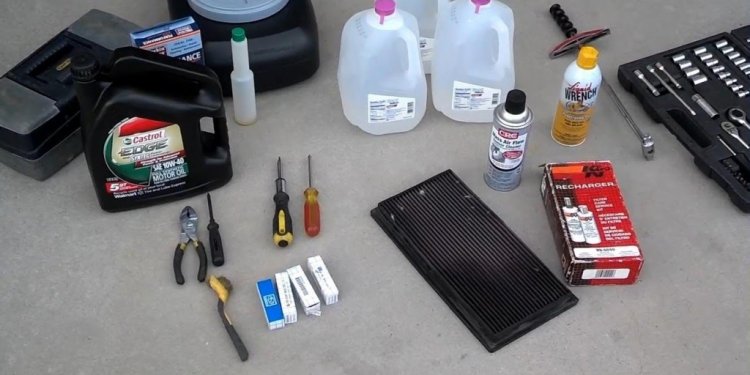
Tune-up up on car What is included
If you're interested in extending the life of your vehicle as much as possible and keeping more cash in your pocket, it's wise to perform preventative care items such as oil changes and tune-ups. But what exactly is a tune-up these days?
Automobiles have become increasingly dependent on computers to run most or all of their systems such as ignition, engine performance, fuel injection and electronics. During any tune-up, a reputable mechanic will want to scan the computer for any codes that may indicate an error and check the ignition system.
Other items a present-day tune-up should include are an inspection of the vehicle’s spark plugs to see if they need to be replaced. The same goes for the spark plug wires. The vehicle’s air filter and fuel filter should also be inspected and replaced if necessary.
For most vehicles, these preventative care tune-ups and inspections should start at about 60, 000 miles and then be checked again at 20, 000-mile intervals thereafter. This is a big change from older, more mechanically driven cars that required technicians to change the points and distributor cap as well as adjusting the carburetor, ignition point settings and timing every few thousand miles. The reliance on computers to monitor these automotive systems has now required technicians to be proficient computer software and scanning machines in order to diagnose issues.
Something to be aware of also, is that if you are experiencing a performance problem like chugging or slow acceleration, it may not be related to a need for a tune-up, but a symptom of the emissions system, such as a blocked catalytic convertor, or the fuel delivery system, such as a clogged fuel injector. Take it to your mechanic and describe the problem so they can diagnose what the car needs.
One final note for drivers is to be aware that when you visit your local repair shop and request a tune-up, this does not necessarily include an oil change or other fluid changes. Oil changes should be done more frequently than tune-ups, but that schedule is being extended as well to about every 5, 000 to 7, 500 miles - depending on the vehicle, engine size and driving - due to cleaner running engines and synthetically blended oils. Keep track of your mileage and consult with you mechanic, don't necessarily rely on the change oil light on the dash.
In any case, be sure to get an estimate for all work that is suggested and that you understand why the technician is recommending it. Working together with your trusted repair shop, you can be reassured that you are safe on the road and keep your car running trouble-free!
About this Angie's List Expert: JoAnn Shilling is the office manager for Joe Shilling, Inc., which has been proudly providing automotive repair services in the Wilmington, Del., area for more than 30 years. The company, which hires only ASE-certified technicians, is Delaware emission certified, a NAPA Auto Care Center, a AAA approved repair facility and affiliated with the Automatic Transmission Rebuilders Association.
















